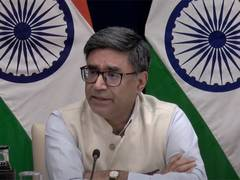
New Delhi: Anil Nautiyal, currently serving as Joint Secretary in the Ministry of External Affairs, has been appointed as India’s next Ambassador to the Republic of South Sudan, according to a press release from the Ministry. Nautiyal, who joined the Indian Foreign Service in 2004, is expected to assume his new role soon, succeeding Vishnu Kumar Sharma.
South Sudan was part of Anglo-Egyptian Sudan from 1899 to 1955, governed jointly by Britain and Egypt. After enduring two civil wars (1962-72 and 1983-2005), it became an autonomous region in Sudan. In 2005, a Comprehensive Peace Agreement (CPA) was signed in Nairobi between the Sudanese government and the Sudan People’s Liberation Movement (SPLM), allowing for a referendum on independence within six years. South Sudan achieved independence on July 9, 2011, after a referendum in January of that year, with India being one of the first nations to recognize its independence. The then Vice President of India, Hamid Ansari, participated in the Independence Day celebrations in Juba.
India established a consulate in Juba in October 2007, which was elevated to an embassy in March 2012. South Sudan opened its embassy in New Delhi in August 2012. The two countries have maintained friendly relations over the years. Following a civil war that erupted in December 2013, a Revitalized Agreement on the Resolution of the Conflict in South Sudan (R-ARCSS) was signed on September 12, 2018, in Addis Ababa. A transitional government of national unity is currently in place, tasked with implementing the R-ARCSS and conducting elections for a democratic transfer of power by February 2025, following an extension of the transition period agreed upon by political partners in August 2022.
